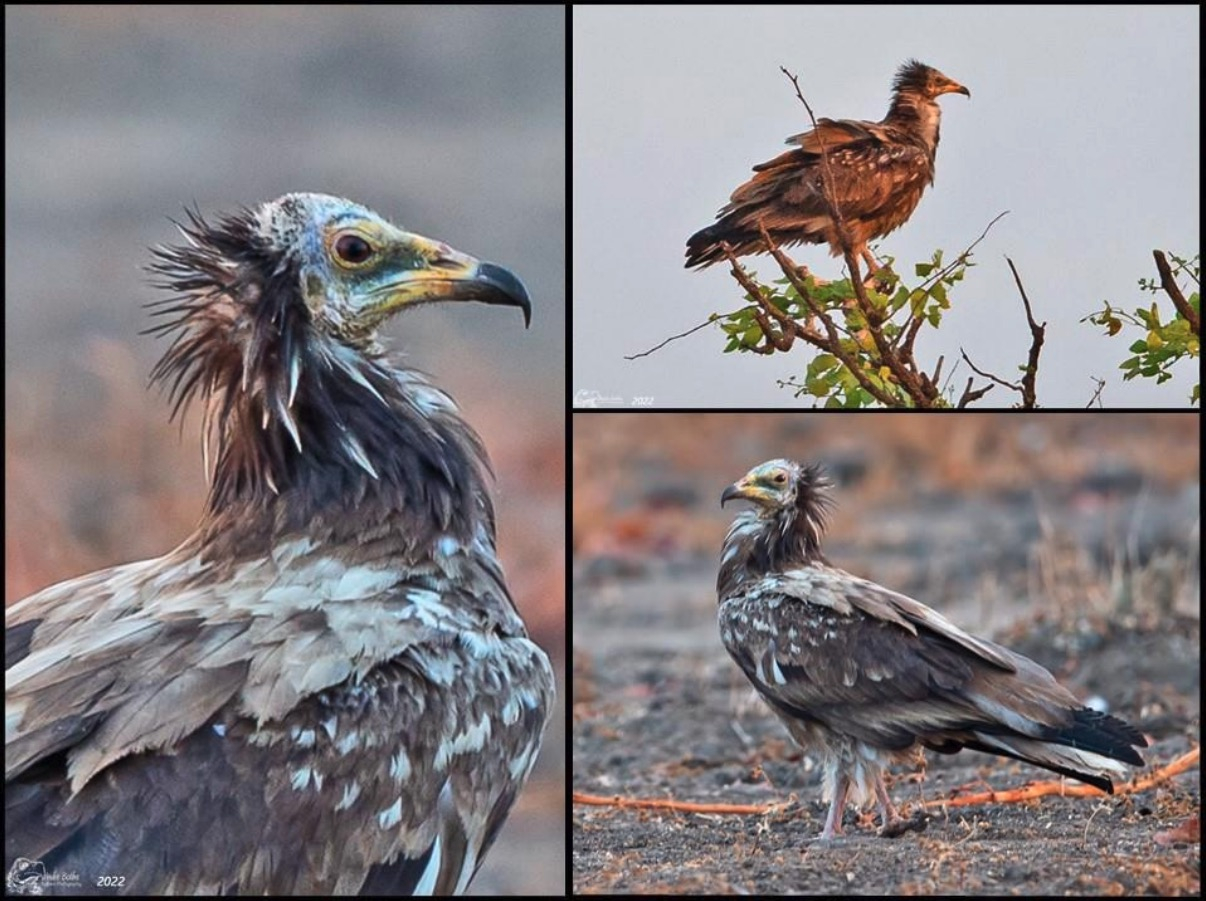For the first time on record, Lilongwe Wildlife Trust has reported a sighting of an Egyptian vulture, an endangered species that has never before been seen in Malawi.
The Egyptian Vulture (Neophron percnopterus) is listed as Endangered by the IUCN Red List due to global population and geographic range declines over the last century (BirdLife International 2021). Egyptian Vultures are a trans-continental migratory species native to Europe, Asia and Africa.
Malawi is home to more than 650 species of birds and offers some of the best birding experiences in sub-saharan Africa. One hotspot is Malawi’s premier wildlife reserve, Liwonde National Park thanks to the meandering Shire River that passes through the reserve, attracting birdlife to its waters.
Lilongwe Wildlife Trust are at the forefront of tracking and monitoring vultures in Malawi with their Conserving Malawi’s Vultures Project which seeks to develop the first vulture focused conservation initiatives in Malawi by integrating research, monitoring and public/stakeholder engagement. These sightings demonstrate the value of long-term monitoring work in Liwonde National Park, and are critical in developing conservation tools for these wide-ranging threatened species.
Vultures are the only documented obligate scavengers and provide essential ecosystem services, making them a keystone species. However, despite their importance, vulture populations worldwide are in rapid decline. In fact, seven of the 11 species that occupy ranges in Africa are categorised as Endangered or Critically Endangered by the IUCN.
Declines in vulture populations have devastating impacts, resulting in trophic cascades that can influence ecosystem, social and economic health. Numerous factors have contributed to Africa’s vulture decline, and while these factors vary regionally, most populations are affected by poisoning and human persecution. Conservation initiatives are further impeded by the large multi-country home ranges which many vultures inhabit and vast knowledge gaps within these ranges. Addressing these gaps is therefore critical to developing appropriate conservation initiatives.
Malawi boasts a number of important vulture habitats and is thought historically to have acted as an important stepping-stone between southern and eastern African vulture populations. However, a lack of research and monitoring has led to the silent extirpation of vultures across the majority of Malawi. Recently, due to an increase in ecosystem restoration initiatives, vultures have slowly returned to select protected areas in Malawi, creating a renewed opportunity for the research and conservation of these highly threatened species.
Learn more about Lilongwe Wildlife Trust’s projects on their page here, and to learn more about their work with vultures, click here.






